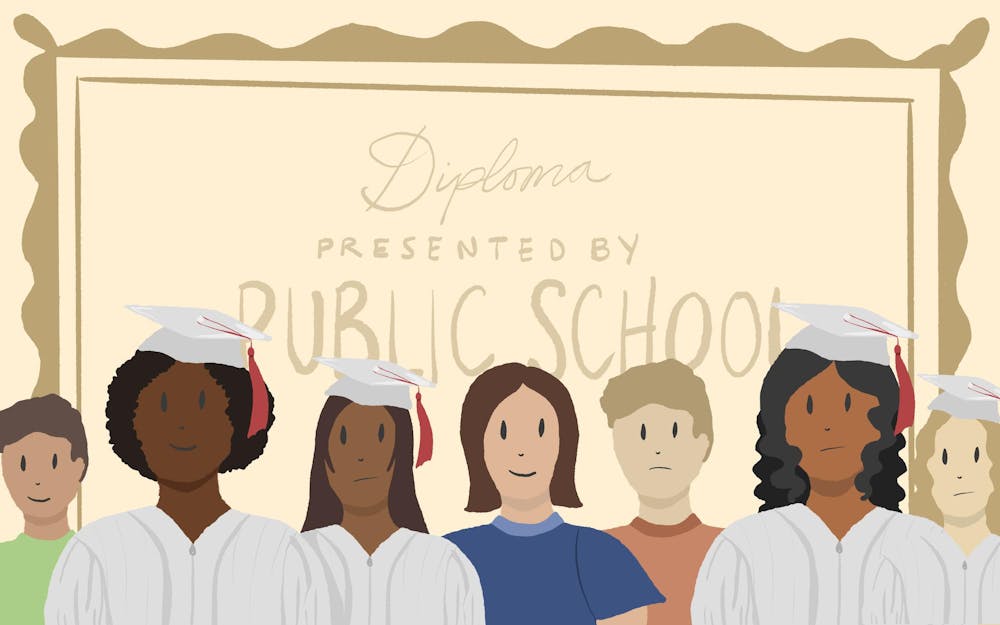In October of 2020, I became one of the many students to fall through the cracks in traditional public education. I was an anxious kid with a dismal home life, and after being withdrawn from high school at 15-years-old, I had discouraging prospects. Yet, this past May, I received my diploma as valedictorian. Where I was once terrified to be in a classroom, I had become thrilled to find myself in college this fall. In the time between, what made it all possible? Harwood Career Preparatory High School – an alternative school with nontraditional educational methods.
The idea may leave a bad taste in the mouth for some. In fact, people cultivate a stigma against alternative schools, perpetuating the idea that they’re bad schools where bad kids go. To be sent there is the highest discipline, and to be a student there is a damning condemnation of morality.
The reality of alternative education is that not every child can learn or function properly in the traditional public school. There are those whose needs differ from the masses, and they deserve an appropriate, fair approach to their education. Alternative schools provide a smaller environment that can take an individualized approach to student needs while preparing them for the future and enabling them to receive a high school diploma.
It is not just an issue of education, but accessibility and equality. Racial minorities and students who are disabled, impoverished or part of the LGBTQ+ community are more likely to be pushed out of education through repeated discipline, suspensions and expulsions. According to a report published by the Learning Policy Institute, these punishments increase the likelihood of dropping out. Furthermore, students of color are suspended at higher rates than their white peers.
This leads to an increased chance of involvement in the criminal justice system, known as the school-to-prison pipeline. And without a high school diploma, there are less job opportunities available. Even so, the few available positions have lower wages and fewer chances for the student to advance.
The main difference between traditional and alternative schools is the approach to discipline. Many traditional schools maintain a zero-tolerance discipline policy, while alternative schools more commonly use the Positive Behavioral Interventions & Supports framework, or PBIS, which aims to support students rather than punish them for minor infractions.
I recall being scolded for various displays of non-conformity when I was younger. School was an environment where I couldn’t bounce my leg, stay at the nurse’s for longer than 20 minutes even if I still had a searing migraine or take a bathroom pass more than once a week to have my panic attack in privacy. This ultimately led to much of the anxiety that prevented me from pursuing a typical educational journey. It was suffocating, being reprimanded for warning signs that were my body’s silent cry for help.
Eventually I decided to speak up. I went to teachers, counselors and police officers, but I was rebuffed, ignored and given empty assurances and flyers for food pantries. I was pushed to the edge and fell through the cracks.
Later, at my alternative school, I would find myself surrounded by people with compassion. Educators who talked to me, congratulated me and supported me. My bad days never excluded me from kindness, worthiness or humanity. I found myself tearful at graduation — it felt bittersweet to leave behind those who'd helped me unconditionally, and I was so proud of my peers who'd worked hard alongside me. That made it all the sadder to be part of the last graduating class.
The school corporation shut us down.
Board meetings skimmed the matter, vaguely rationalizing that data indicated it would be a good change for students, yet never sharing numbers. Students protested in front of the administration offices and parents objected in conversations with reporters. Still, the higher-ups continued dismantling our school with frustratingly little communication.
Come summer break, our little community — our little family — no longer had a home. The haven for those of us who had suffered at our previous schools was gone. Without larger awareness, I worry those sanctuaries, those alternative schools, will continue to disappear. Non-traditional students deserve an education, and a safe place to pursue it.
Ellie Willhite (she/her) is a freshman pursuing a BFA in cinematic arts with minors in sociology and Korean.






